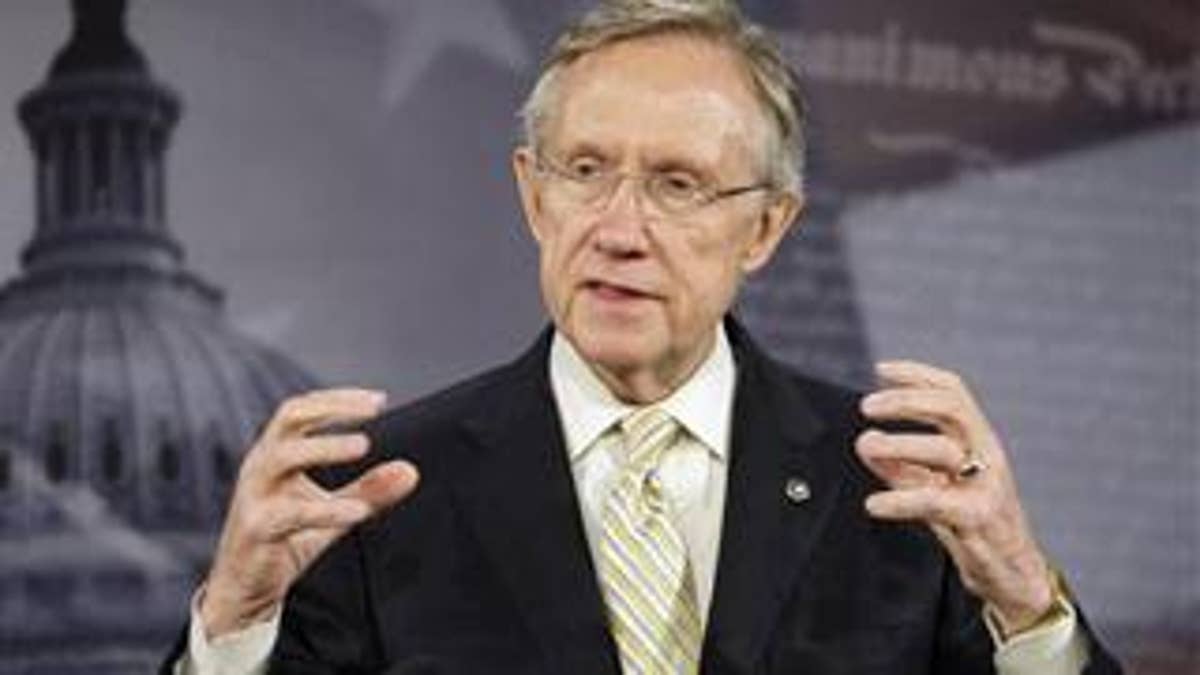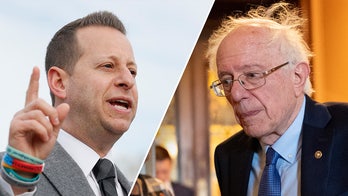
Senate Majority Leader Harry Reid said Monday that Senate Democrats will include in the health care reform bill a government-backed health insurance program that allows states to opt out if they can come up with an alternative.
"I think it's the fairest way to go," Reid said of the "opt out" proposal.
The "opt out" proposal would set up a national insurance plan with government seed money and be run by a private, not-for-profit board. Under the proposal, states would have to prove they can provide comparable coverage in order to exit out of the federal plan. The plan would also negotiate rates with providers just like private insurance companies do, presumably keeping premiums on a level playing field with the private industry.
The measure is one of a host of different so-called public options being considered in the Senate. Though the public option seemed off the table in the chamber just one month ago, it gained traction in recent weeks as Democratic leaders floated versions meant to be more appealing to party moderates.
Reid expressed confidence Monday that the new Senate bill, which is a merger of the health care bills passed by two separate Senate panels, would have the "support of my caucus" once the Congressional Budget Office puts a price tag on the proposal.
Reid, though, needs 60 votes to shut down debate and move the bill toward a final vote on the floor -- he appeared to be a couple votes shy of that number over the weekend. Plus Sen. Olympia Snowe, R-Maine, the only Republican so far to vote for any version of health care reform, opposes Reid's plan.
"While the public option is not a silver bullet, I believe it's an important way to ensure competition and to level the playing field for patients with the insurance industry," Reid said.
Snowe favors a bill that would "trigger" a public plan down the road only if the insurance industry does not meet certain conditions, and released a statement Monday saying she was "deeply disappointed" by Reid's proposal.
But Senate Majority Whip Dick Durbin told Fox News that Snowe's version would have lost votes from liberal Democrats. Reid said Democrats will "have to move forward" without the Maine senator, and that he hopes Snowe eventually sees the "wisdom" in supporting the overall package.
"I'm always looking for Republicans," Reid said.
Reid maintained that the bill still includes a "coop," as was included in the Senate Finance Committee version.
House Speaker Nancy Pelosi is pushing a more robust version of the public plan, which would be based on Medicare rates and in turn provide for cheaper premiums. Pelosi reportedly does not yet have the votes in her caucus to pass that version.
House Republican Leader John Boehner said it's time to scrap the existing health care proposals and start over.
"Whether you call it a public option, an opt-out, a trigger, or a co-op, the fact is all of these proposals put us on the path to government-run health care," Boehner said. Forcing Americans off of their current health coverage and onto a government-run plan isn't the answer, but that's exactly what the Democrats' plan would do."
After Reid spoke, White House Press Secretary Robert Gibbs issued a statement in which President Obama congratulated Democrats for their "hard work on health insurance reform."
"While much work remains, the president is pleased that at the progress that Congress has made. He's also pleased that the Senate has decided to include a public option for health coverage, in this case with an allowance for states to opt out. As he said to Congress and the nation in September, he supports the public option because it has the potential to play an essential role in holding insurance companies accountable through choice and competition," Gibbs said.
The head of the AFL-CIO also gave some ground Monday, saying the labor group is open to Democrats' proposal to tax high-value health insurance plans as a means of paying for the reform package.
But the health insurance industry bristled at Reid's announcement. America's Health Insurance Plans, which has fought against a public option, released a statement Monday saying the new plan would "underpay doctors and hospitals" rather than drive reform and bring down costs.
"The divisive debate about a government-run plan is a roadblock to reform," AHIP President Karen Ignagni said. "It's time we focus instead on broad-based reforms that will ensure the affordability and sustainability of our health care system."




